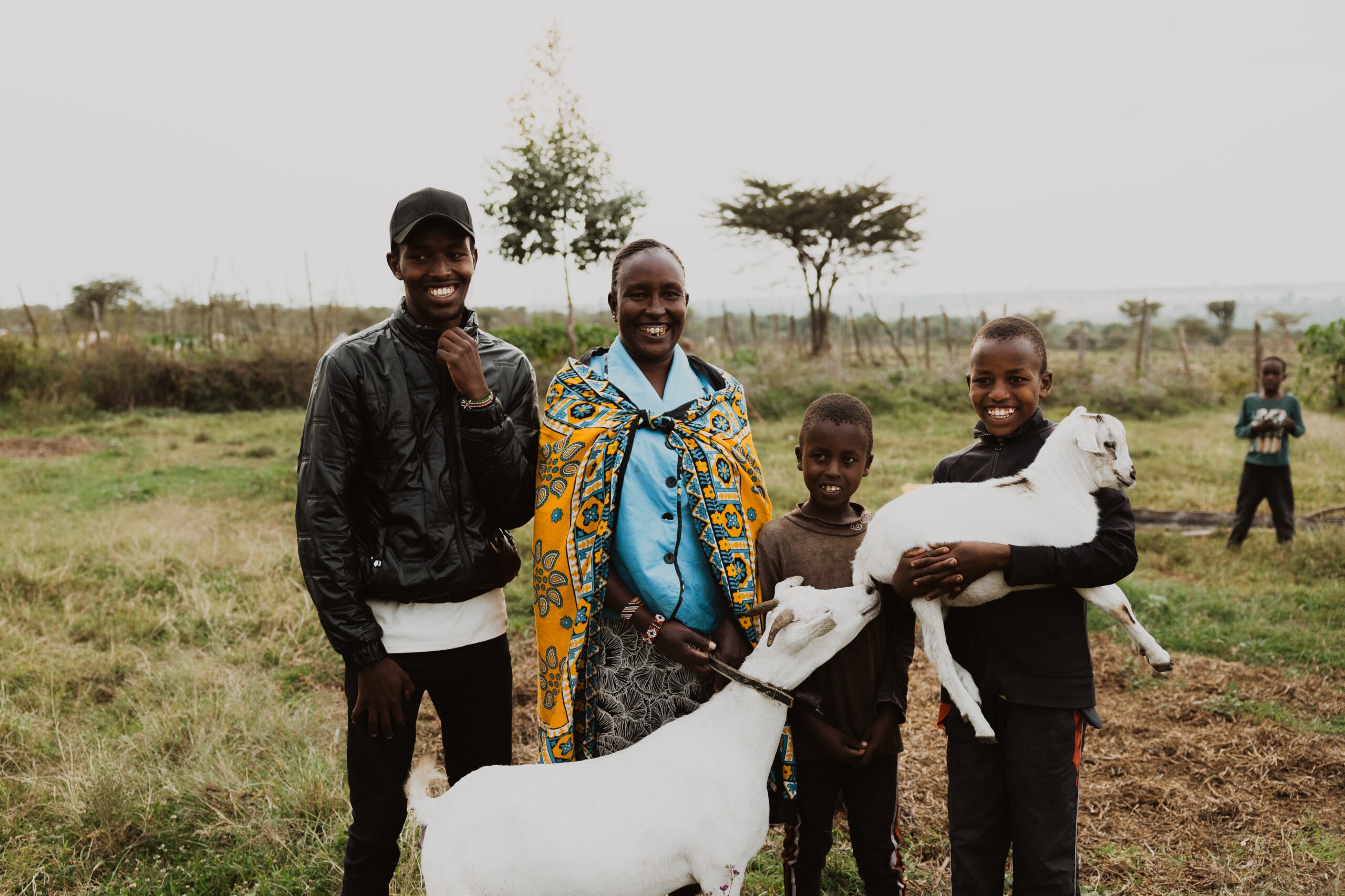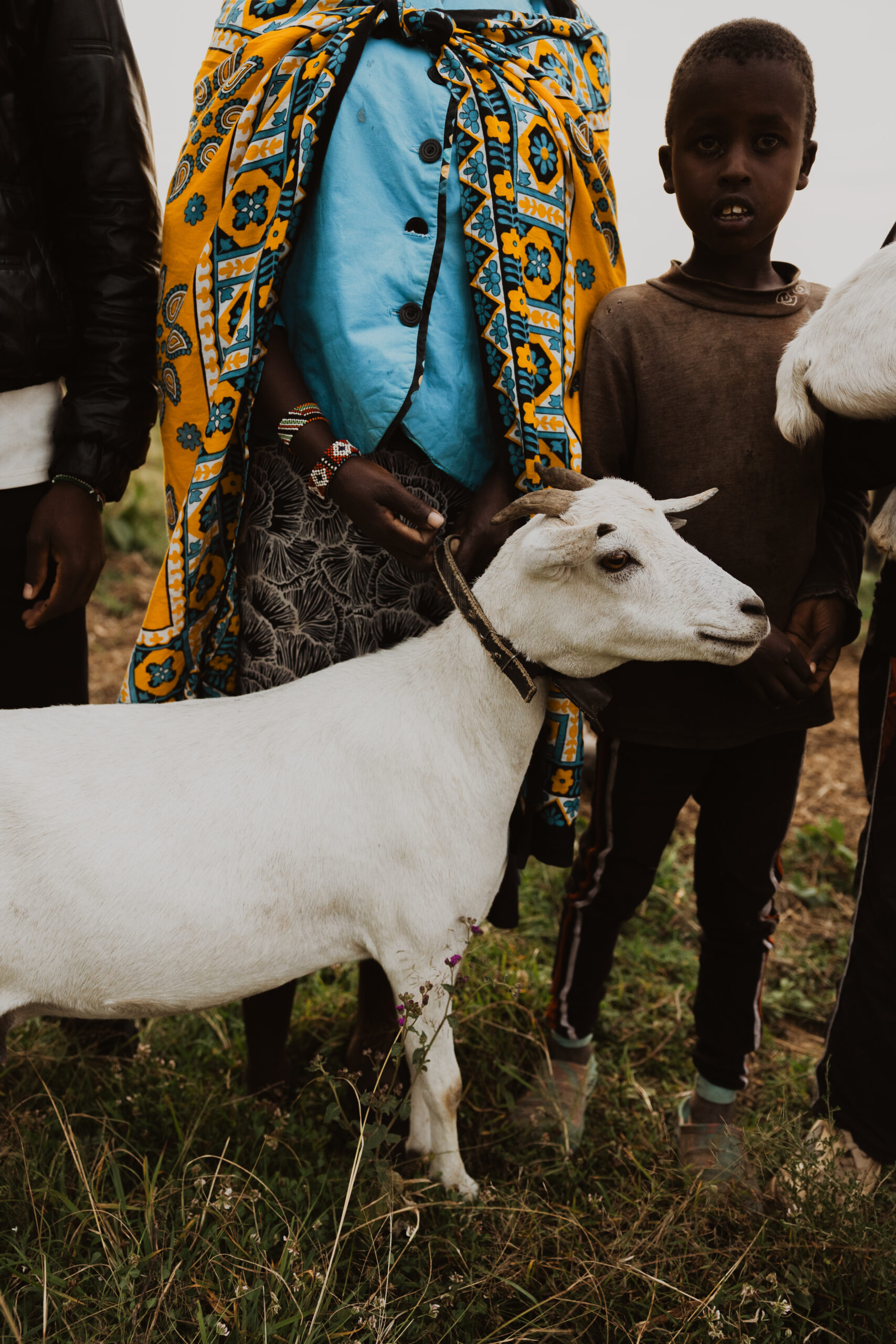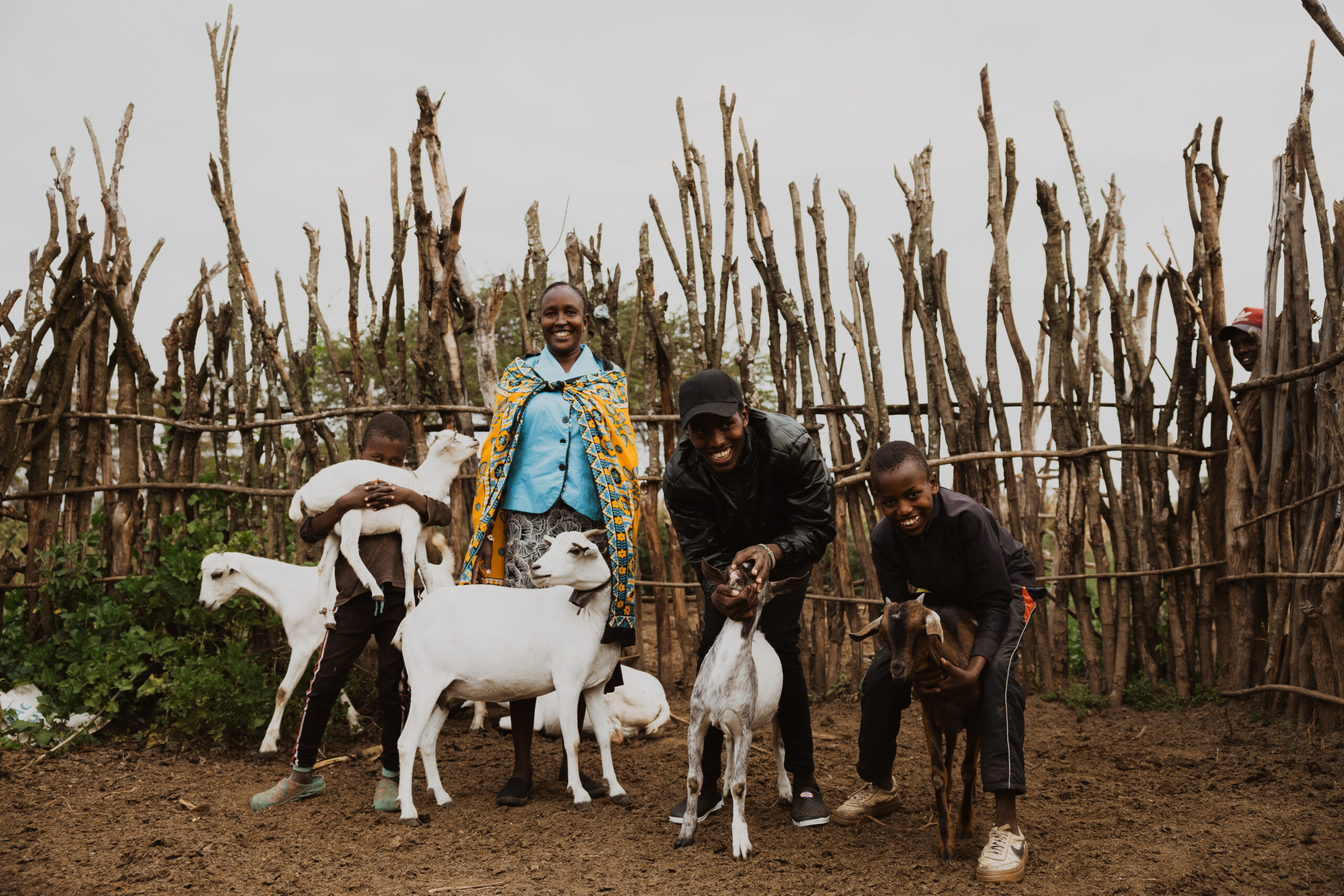There were as many goats on the dirt pathway as there were people. The crowd shifted from side to side, speaking so loudly that if we paused, we could catch our thoughts, even if for a second.
Across the dirt road and patchy grass lawn, Gladys locked eyes with me and let out a smile that reassured me we were going to get along just fine.

From what we knew of Gladys, she didn’t have a lot. She comes from an area that often faces issues with widespread malnutrition and poverty. Children and adults with extended bellies and receding hairlines can be commonly seen. It’s enough to make you wonder, how can we make a difference, and where do we start?
As I stood there, Gladys shifted her attention to white-haired Mpemdwa. My gaze followed.

Mpemdwa is her 2-year-old female goat who helps her sustain life with her 5 children as a single mother.
Gladys let out a grin as she shared that Mpemdwa means “the loved one.”

“A loved one” indeed, because according to medical doctors who fight malnutrition, owning a goat gives you access to life-sustaining nutrients needed to survive.
Gladys uses this milk to make chai, care for her children, and sell in the village to support her family. Plus, Mpemdwa’s three baby goats provide additional income at the local market, offering a path to stability.
One goat, tremendous impact.
As Gladys and I listened to nearby laughter, I thought, what a gift it is to not be alone.
What a good thing it is to have a companion just like Mpemdwa.


